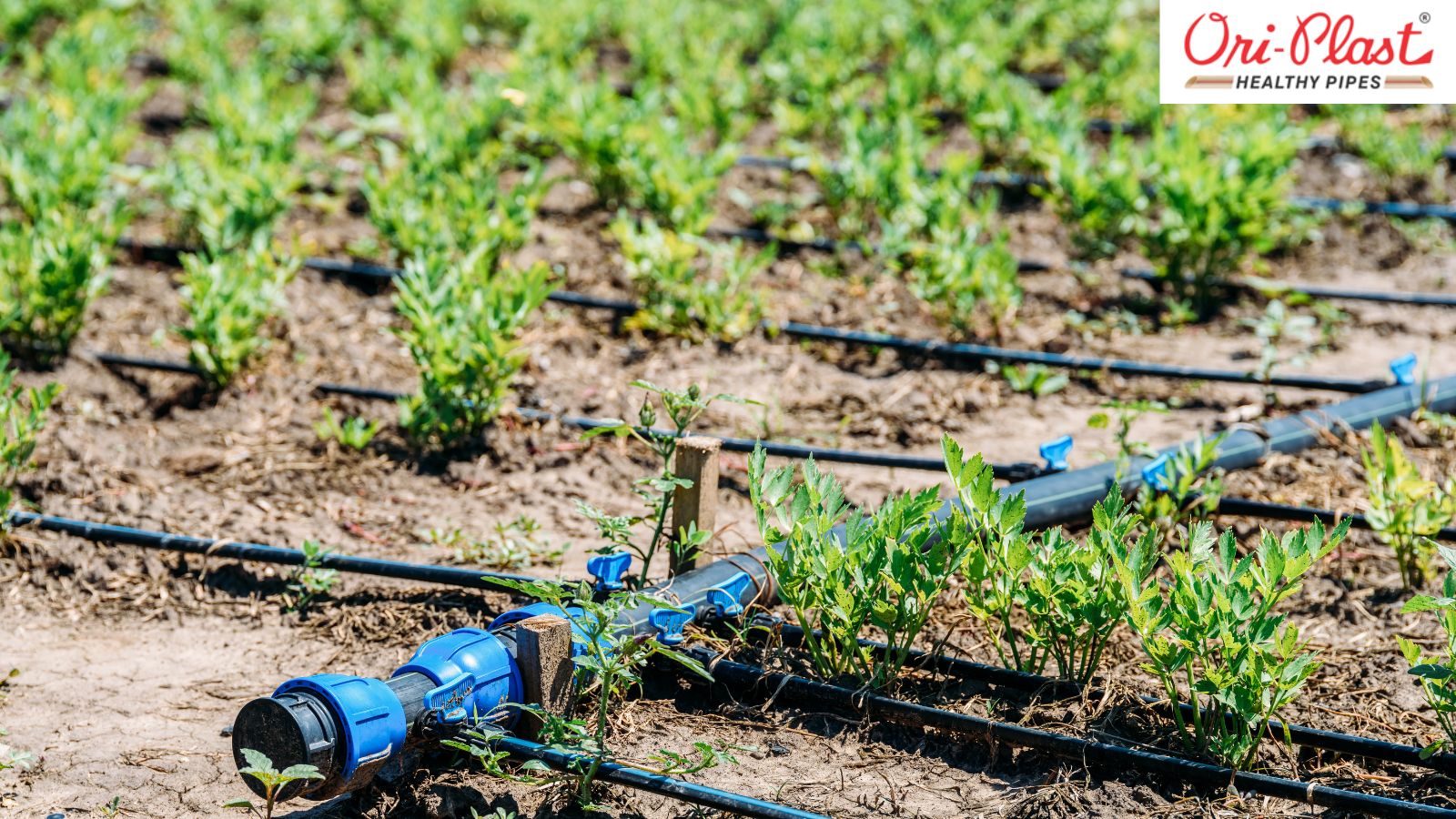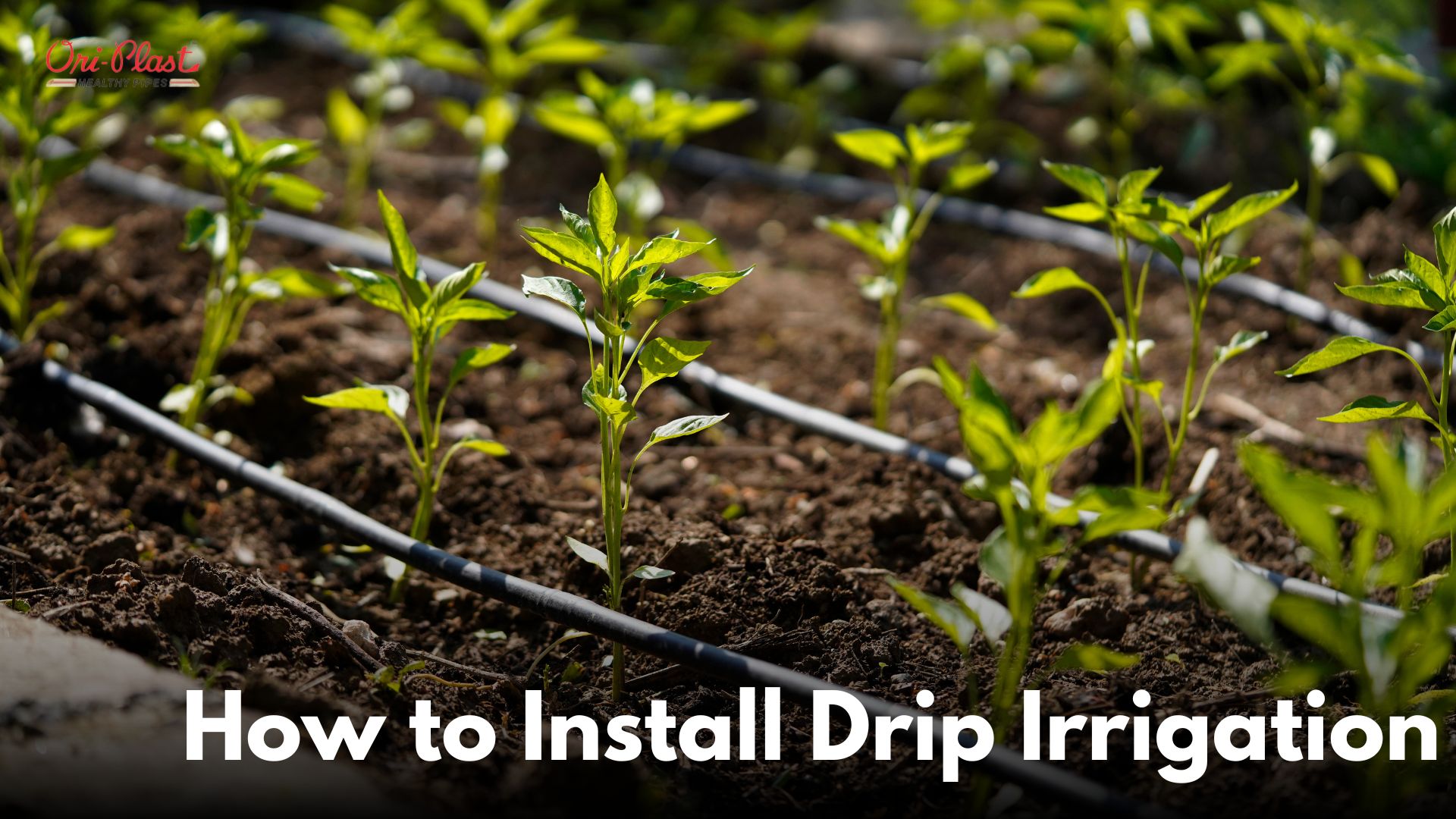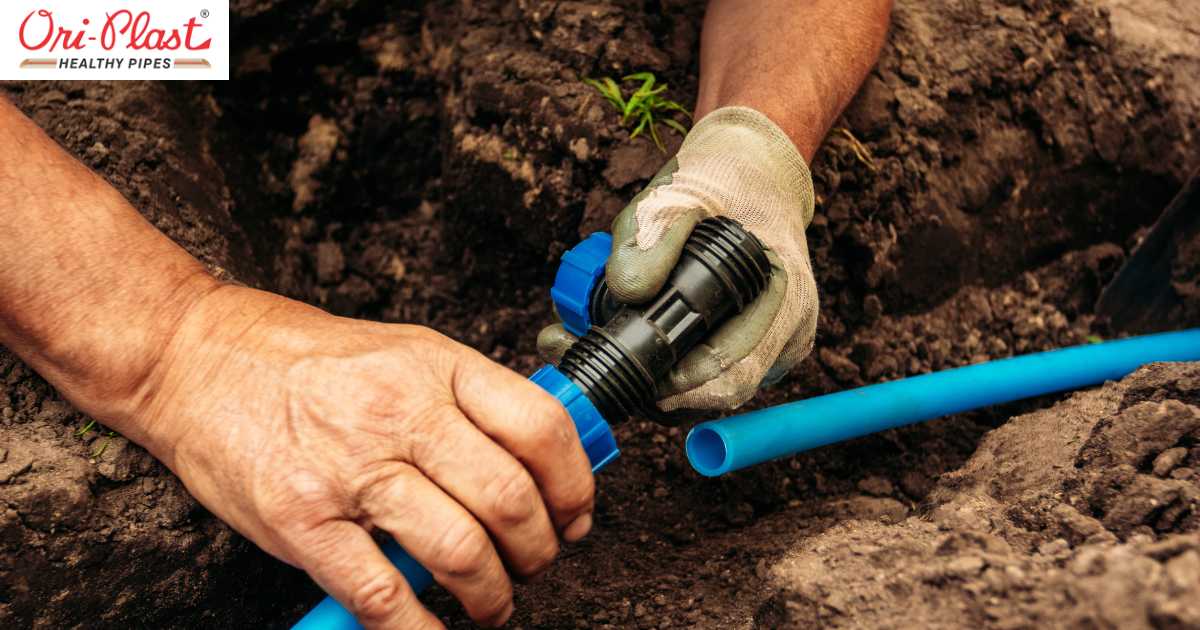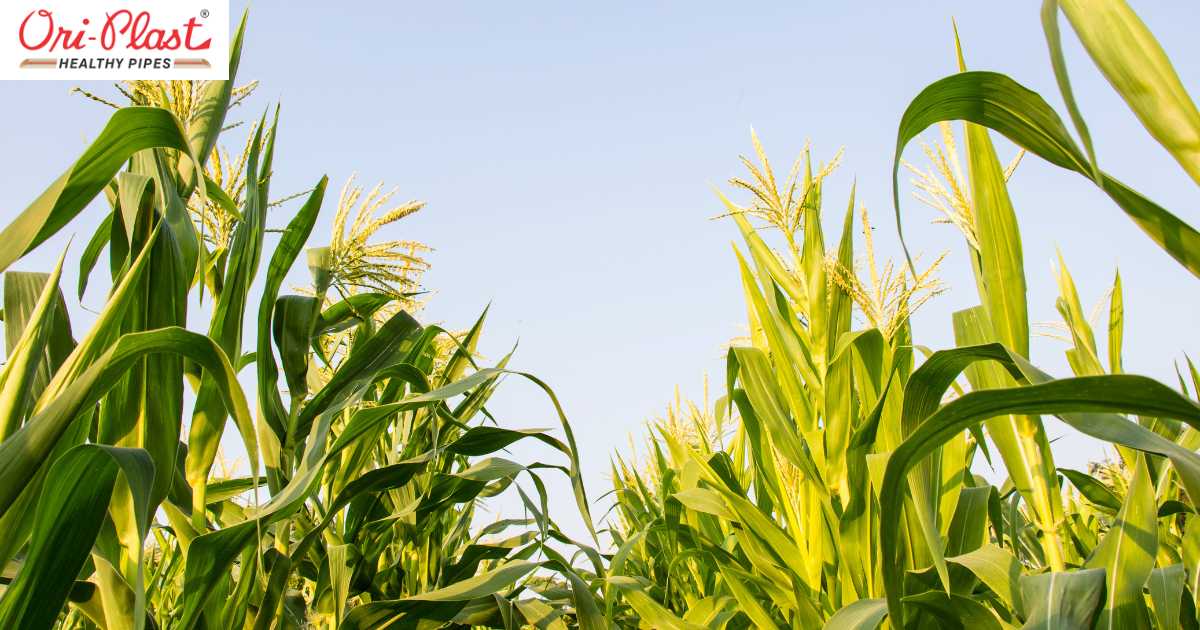As the monsoon season approaches, farmers and agricultural enthusiasts gear up to make the most of the abundant rainfall with Agricultural Pipes and Fittings.
One crucial aspect of successful farming during this season is the effective utilization of agricultural pipes and fittings.
These specialized tools play a vital role in ensuring optimal water distribution, irrigation, and crop health.
In this article, we will explore the significance of application-specific agricultural pipes and fittings for various crops during the monsoon season, along with additional considerations and benefits.
Importance of Agricultural Pipes and Fittings:
Agricultural pipes and fittings form the backbone of a well-designed irrigation system. They are instrumental in supplying water directly to the crops, maintaining moisture levels, and ensuring efficient nutrient distribution.
By selecting the right pipes and fittings for specific crops, farmers can optimize water usage, reduce wastage, and conserve this valuable resource.
Additionally, these tools provide farmers with greater control over water distribution, leading to enhanced crop yields and healthier plants.
Understanding Application-Specific Agricultural Pipes:
- Drip Irrigation Pipes: Drip irrigation systems offer precise water application directly to the plant's root zone, minimizing water wastage and reducing the risk of disease. They are highly suitable for crops like vegetables, fruits, and flowers, providing targeted irrigation and preventing waterlogging. Drip irrigation pipes come in various materials such as PVC and polyethylene, offering flexibility and durability to withstand harsh weather conditions.
- Sprinkler Pipes: Sprinkler systems are popular for their ability to mimic rainfall, providing even coverage across large areas. These pipes are ideal for field crops such as cereals, pulses, and oilseeds, ensuring uniform water distribution and reducing evaporation losses. Sprinkler pipes come in different designs, including impact sprinklers and rotary sprinklers, allowing farmers to choose the most suitable option based on their field size and crop requirements.
- Micro-Irrigation Pipes: Micro-irrigation systems deliver water at a slow and steady pace to promote deeper root growth. They are particularly beneficial for orchards, vineyards, and nurseries, enabling precise irrigation while minimizing water runoff. Micro-irrigation pipes include options like drip tapes, micro-sprinklers, and foggers, allowing farmers to adapt the system according to their specific crop needs and soil conditions.
Types of Agricultural Fittings:
- Couplings and Connectors: These fittings enable easy and secure joining of pipes, ensuring a leak-free irrigation system. Couplings and connectors are available in various materials such as PVC, HDPE, and metal, offering durability and resistance to harsh weather conditions. Quick-connect fittings are also popular as they allow for convenient assembly and disassembly of irrigation lines.
- Valves: Valves play a crucial role in controlling the flow of water through the irrigation system. They help regulate water pressure, prevent over-irrigation, and facilitate the segmentation of fields for different crop requirements. Ball valves, gate valves, and check valves are commonly used in agricultural irrigation systems, providing farmers with control and flexibility.
- Filters: Filtration systems are essential for removing debris, sediments, and other impurities from the water source. Filters prevent clogging in the pipes and protect the irrigation system components, ensuring consistent water flow and preventing damage to the crops. Screen filters, disc filters, and sand filters are among the commonly used filtration options, with varying filtration capacities and maintenance requirements.
Benefits
- Efficient Water Usage: By employing the right pipes and fittings for specific crops, farmers can optimize water usage, reducing wastage and conserving this valuable resource. Application-specific systems allow for precise water application, reducing the risk of over-irrigation and promoting water-use efficiency.
- Enhanced Crop Yield: Application-specific pipes and fittings ensure that crops receive water in the required quantities and at the appropriate intervals, leading to improved crop health and increased yields. By maintaining consistent moisture levels in the root zone, plants can better absorb nutrients, develop strong root systems, and achieve optimal growth.
- Disease Prevention: Proper irrigation systems minimize the risk of waterborne diseases and fungal infections by delivering water directly to the root zone while keeping foliage dry. Drip irrigation systems, in particular, help prevent the spread of soil-borne pathogens by reducing water splashing and runoff, thus promoting crop health and reducing the need for chemical treatments.
- Sustainability and Environmental Impact: By using efficient irrigation systems, farmers can reduce their environmental footprint, conserve water, and promote sustainable agricultural practices. Application-specific pipes and fittings contribute to water conservation efforts, minimizing the strain on local water sources and preserving this precious resource for future generations.
Conclusion:
As the monsoon season brings much-needed rainfall, it is essential for farmers to utilize application-specific agricultural pipes and fittings for optimal crop growth.
Whether it's drip irrigation pipes for vegetables, sprinkler pipes for field crops, or micro-irrigation systems for orchards, selecting the right tools can make a significant difference in crop yield and resource efficiency.
By leveraging these technologies and considering factors such as crop type, soil conditions, and water availability, farmers can harness the power of the monsoon and achieve successful agricultural outcomes.
Additionally, adopting sustainable irrigation practices not only benefits farmers but also contributes to the overall conservation of water and the environment.
Continue Reading...



